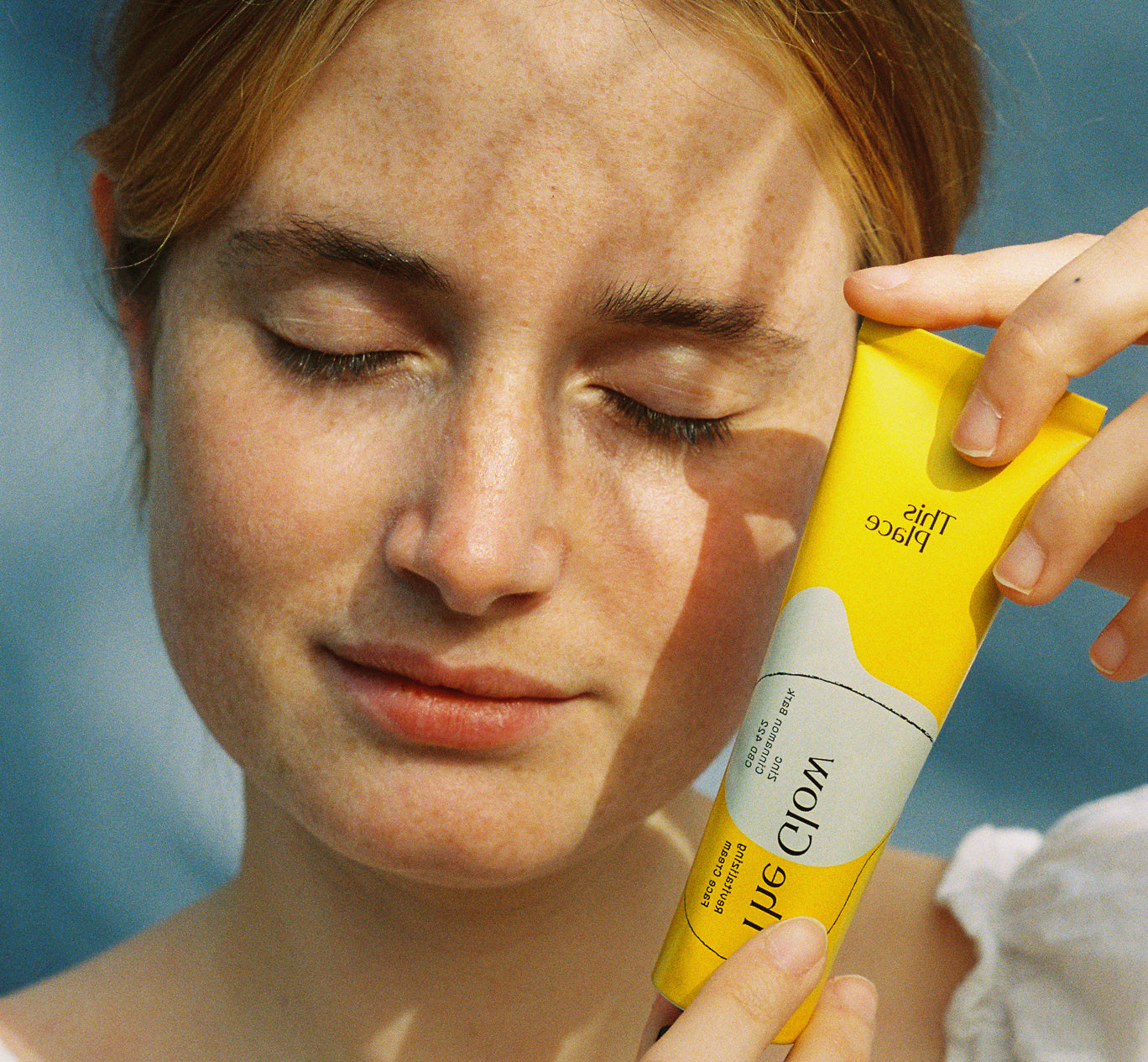What factors affect our skin and how does it react? |
Does chocolate cause our skin to break out? Does smoking cause stress pimples and fine lines? It’s often tough to sort fact from fiction — yet one thing’s for sure: Our skin is our largest organ and has a vital protective function. So if our skin isn’t doing well, our general health is likely compromised too.
Our skin and our well-being
Healthy skin and well-being influence each other. While debilitating skin conditions can lead to psychological problems, such as depression or anxiety disorders [1], studies also suggest a direct link between stress and acne [2] [3]. A stress pimple is therefore not a myth, but might be a valuable warning signal from our body telling us to shift down a gear or two.
Relaxation exercises such as meditating before going to sleep might be beneficial for our skin, especially during stressful times.
Exercise
Regular exercise isn’t just good for our general fitness and psyche, but for our skin as well because working out promotes healthy blood circulation. The more intensely our heart pumps, the better our blood spreads throughout the body and nourishes our cells with oxygen — including our skin cells, which shows from the rosy colouring of our skin while we exercise. At the same time, the increased blood flow makes it easier to flush out toxins and other compounds that might harm our skin[4].
When we exercise, the body also releases endorphins, which affect pain and stress by helping us better regulate hormones such as cortisol and adrenaline [5]. And so we come full circle: Workouts can also help combat the stress that often triggers stress pimples.
With regular exercise, we give our skin a boost. For those of us with existing skin issues such as sensitivity and breakouts, we should be careful not to wear clothes that are too tight and always take them off after exercising and then hop in the shower. By the way: Aside from exercise, massages and trips to the sauna can also stimulate blood circulation in our skin by simultaneously arousing our lymphatic system.
Nutrition
The connection between what we eat and healthy skin is more than just an old wives’ tale. A poor diet that doesn’t get enough proteins, carbohydrates, fats or vitamins has the potential to impact the appearance of our skin [6]. In one study, a lack of vitamin C in particular was associated with skin that tends to age more quickly [7].
Various studies also indicate that a diet with a low glycemic index — which indicates how much a given food’s carbohydrates raise glucose levels in the blood — might have a positive effect on skin that suffers from acne [8] [9] [10].
Vices
Our skin doesn’t tend to respond well to vices like cigarettes and alcohol. Tobacco smoke can, among other things, contribute to decreased levels of oxygen in the skin and reduced formation of new collagen [11].
Regular alcohol consumption makes us dehydrated and impairs the capillary flow in our skin. In the long term, this can result in various skin conditions, such as urticarial reactions, flushing and more [12]. That said, we can still enjoy the occasional glass of red wine without our skin having to pay for it later. It’s all about moderation.
Sleep
We already learned that regular relaxation can also have a positive effect on our skin by helping to reduce stress. Sleep is very important for the skin as well. Research indicates an association between both sleep deprivation and poor sleep quality with skin that’s less hydrated and ages more quickly [13] [14]. Since each person’s sleep needs are different, it makes sense to figure out how much sleep we actually need in order to know if we’re getting enough of it.
Sun
Basking in the sun can be healthy because it supplies the body with vitamin D. However, one study showed that UV rays might be responsible for 80% of visible skin aging and increase our risk of developing skin cancer, depending on our skin type [15] [16].
That’s why it’s recommended to enjoy the sun in moderation only and to always make sure our skin is protected, preferably with high-quality sunscreen. Our skin will thank us later.
Contaminants
Our skin functions like a protective shield for our body’s organs, yet in the process it also comes into contact with lots of materials. Airborne pollution like fine dust or soot can penetrate the outer layers of our skin, as well as be inhaled and distributed throughout the body via the vascular or circulatory system — which is how these contaminants can also make their way into the deep layers of our skin [17]. The resulting oxidative stress is associated with early skin aging and an increased risk of developing chronic inflammatory skin conditions [17].
Harmful substances can reach our skin not only through the air but also through our cosmetics. The artificial chemicals in many care products can visibly irritate those of us with sensitive skin. They can even cause skin irritation in those of us with other skin types too [18].
How a holistic approach can contribute to healthier skin
Using natural cosmetics is an easy way to protect our skin from the irritating effects of artificial chemicals. Take our >The Glow face cream, for example, which consists exclusively of natural ingredients that pamper you to your core. As you know, here at ThisPlace we are big believers in scientific evidence — and we’re all the more pleased that studies have already vetted our cream’s anti-inflammatory effects.
A combination of natural care products and a healthy lifestyle that consists of regular exercise, a balanced diet, adequate sleep and relaxation are therefore the keys to healthy skin. And with these additional simple skin care tips for everyday life, we can continue to support our skin even further.
Sources
[1] The Psychological Burden of Skin Diseases: A Cross-Sectional Multicenter Study among Dermatological Out-Patients in 13 European Countries
https://www.ncbi.nlm.nih.gov/pmc/articles/PMC4378256/< / p>
[2] The association between stress and acne among female medical students in Jeddah, Saudi Arabia
https://www.ncbi.nlm.nih.gov/pmc/articles/PMC5722010/
[3] The response of skin disease to stress: changes in the severity of acne vulgaris as affected by examination stress
https://pubmed.ncbi.nlm.nih.gov/12873885/
[4] Exercise for Healthy Skin
https://www.webmd.com/skin-problems-and-treatments/acne/features/exercise#1
[5] Benefits of Sports for Mental Health
https://www.webmd.com/mental-health/benefits-of-sports-for-mental-health
[6] The Impact of Food Intakes on Skin Health Mini Review
https://www.researchgate.net/publication/338126698_The_Impact_of_Food_Intakes_on_Skin_Health_Mini_Review
[7] Dietary nutrient intakes and skin-aging appearance among middle-aged American women
https://doi.org/10.1093/ajcn/86.4.1225
[8] A low-glycemic-load diet improves symptoms in acne vulgaris patients: a randomized controlled trial
https: // pubmed.ncbi.nlm.nih.gov/17616769/
[9] The effect of a high-protein, low glycemic-load diet versus a conventional, high glycemic-load diet on biochemical parameters associated with acne vulgaris: a randomized, investigator-masked, controlled trial
https://pubmed.ncbi.nlm.nih.gov/17448569/
[10] A pilot study to determine the short-term effects of a low glycemic load diet on hormonal markers of acne: a nonrandomized, parallel, controlled feeding trial
https://pubmed.ncbi.nlm.nih.gov/18496812/
[11] Smoking and skin damage
https://www.dkfz.de/de/rauchertelefon/download/ FzR_Hautschaeden.pdf
[12] Skin diseases in alcoholics
https://pubmed.ncbi.nlm.nih.gov/15369644/
[13] A study of skin characteristics with long-term sleep restriction in Korean women in their 40s
https://pubmed.ncbi.nlm.nih.gov/31692145/
[14] Does poor sleep quality affect skin aging?
https://pubmed.ncbi.nlm.nih.gov/25266053/
[15] Effect of the sun on visible clinical signs of aging in Caucasian skin
https: // www .ncbi.nlm.nih.gov / pmc / articles / PMC3790843 /
[16] Sun and Skin: The Dark Side of Sun Exposure
https://newsinhealth.nih.gov/2014/ 07 / sun-skin
[17] The impact of airborne pollution on skin
https://www.ncbi.nlm.nih.gov/pmc/articles/PMC6766865/
[18] Toxicity and Effect of Chemicals in Skin Care Products on Human Health
https://www.researchgate.net/publication/342280599_Toxicity_and_Effect_of_Chemicals_in_Skin_Care_Products_on_Human_Health

